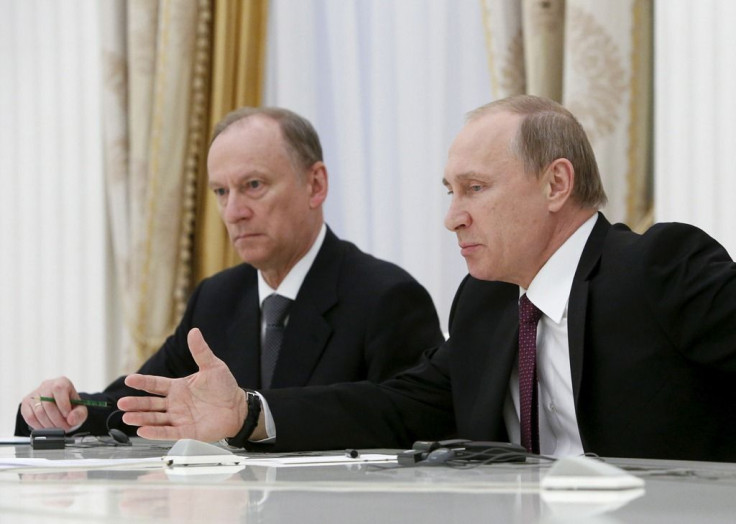Putin Blames Foreign Interference For Rise Of ISIS In Middle East

Russian President Vladimir Putin blamed foreign intervention in the Middle East for the rise of the Islamic State group, also known as ISIS. The Russian president was discussing security measures at the seventh BRICS Summit.
Putin said that the problems in the Middle East and in North Africa stemmed from the presence of ISIS militants. He referred to the terrorist organization by another acronym for the Islamic State, ISIL.
“There was no terrorism in the countries where [ISIS] is active now until a totally unacceptable outside interference, which occurred without United Nations Security Council permission, took place,” Press TV quoted Putin. He was speaking in a meeting with security officials from Brazil, Russia, India, China and South Africa.
Many consider foreign intervention in the Middle East illegal. They argue that the U.S.-led coalition did not wait for any authorization from Syria or the United Nations before launching airstrikes against ISIS militants.
Putin’s criticism comes after U.S.-led coalition suffered a major setback in the Iraqi city of Ramadi. ISIS forces emerged as winners after Iraqi ground forces, backed by the foreign coalition, fled.
U.S. Defense Secretary Ash Carter blamed Iraq for showing “no will to fight.” Iraqi Prime Minister Haider al-Abadi, on the other hand, said his troops would regain Ramadi within days. ISIS forces, according to reports, control half of Syria and at least a third of Iraq.
While Putin has strained relations with the West over disagreements concerning Crimea and Ukraine, he is not alone in his criticsim of foreign intervention in the Middle East. J.M. Berger, writing in Politico, recently said that U.S. President Barack Obama continues to underestimate the strength of ISIS forces.
“Perversely, the United States is itself sorely lacking in strategy, whether in its pedestrian or mythical definitions, with regard to the problem of ISIL,” Burger writes. “We have deployed a fairly limited collection of tactics, with an increasingly baseless confidence that these will 'buy time' for improbable political resolutions in Iraq and Syria,” he added.
Berger wrote that ISIS depends mainly on two strategies to achieve its political goals: It uses extreme violence to excite fanatics and intimidate military rivals, and it also capitalizes effectively on strategic chaos.
© Copyright IBTimes 2024. All rights reserved.





















